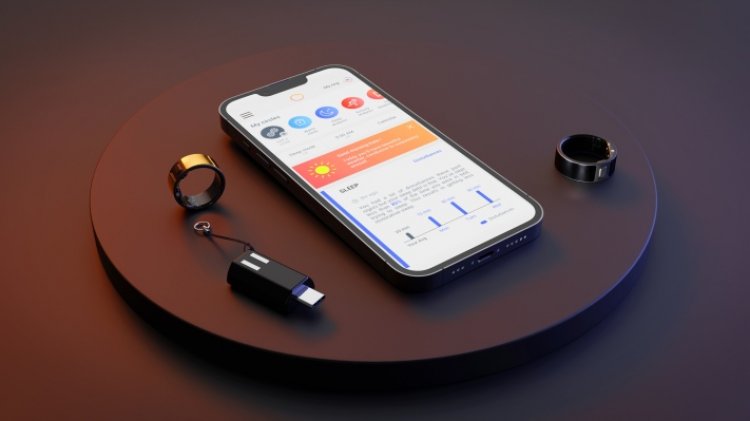Circular takes on Oura with a $259 smart ring
Oura wasn’t the first smart ring to market, but over the course of its life, the device has had surprisingly little competition. In general, it’s proven difficult for consumer hardware companies to find a toehold beyond the wrist. Though the brand’s relative success has no doubt raised hope that the fitness band/smartwatch isn’t necessarily the […]

Oura wasn’t the first smart ring to market, but over the course of its life, the device has had surprisingly little competition. In general, it’s proven difficult for consumer hardware companies to find a toehold beyond the wrist. Though the brand’s relative success has no doubt raised hope that the fitness band/smartwatch isn’t necessarily the end-all-be-all for the category.
CES has never been a huge show for wearables, but the event that gave us our first glimpse at what seemed to be the first viable smart ring delivered two more this year. There’s Movano, which we highlighted late year. The company said it’s shooting for a second-half launch. Also notable is Circular. The French startup offered a sneak preview — but not much more — at the show.
Today, the company announced its titular ring will open for preorder on February 27, priced at $259. That’s $50 less than the latest Oura (gen 3), and Circular’s not yet discussing a monthly subscription plan for its promise of “not […] just raw data but personal insights.” Let’s be frank though — everyone appears to be on a steady march in that direction these days, regardless.
The company’s got a wide time frame for the actual delivery of the product — between April and June. To some degree, that’s to be expected for a relatively young and small firm, particularly as we’re in the throes of ongoing chip and supply chain constraints.
The ring sports a number of different sensors for things like heart and respirator rate and body temperature. From that standpoint, at least, we’re operating in the general Oura territory, creating actionable insights based on a number of vitals in a bid to “democratize personal health,” per the marketing material. That’s coupled with a “personal assistant” in the app. The battery should last up to four days and charges in around 45 minutes.
From the sound of things, consumer is the first step for a still-small hardware startup. Moving forward, the company is looking to hit the B2C market via insurance and health companies. That’s probably where the real money is for a product like this, but it’s a longer runway with more regulatory red tape.
The ring is launching in Europe (France, Germany, Italy and the U.K.), along with the U.S., Hong Kong, Singapore and Australia.







